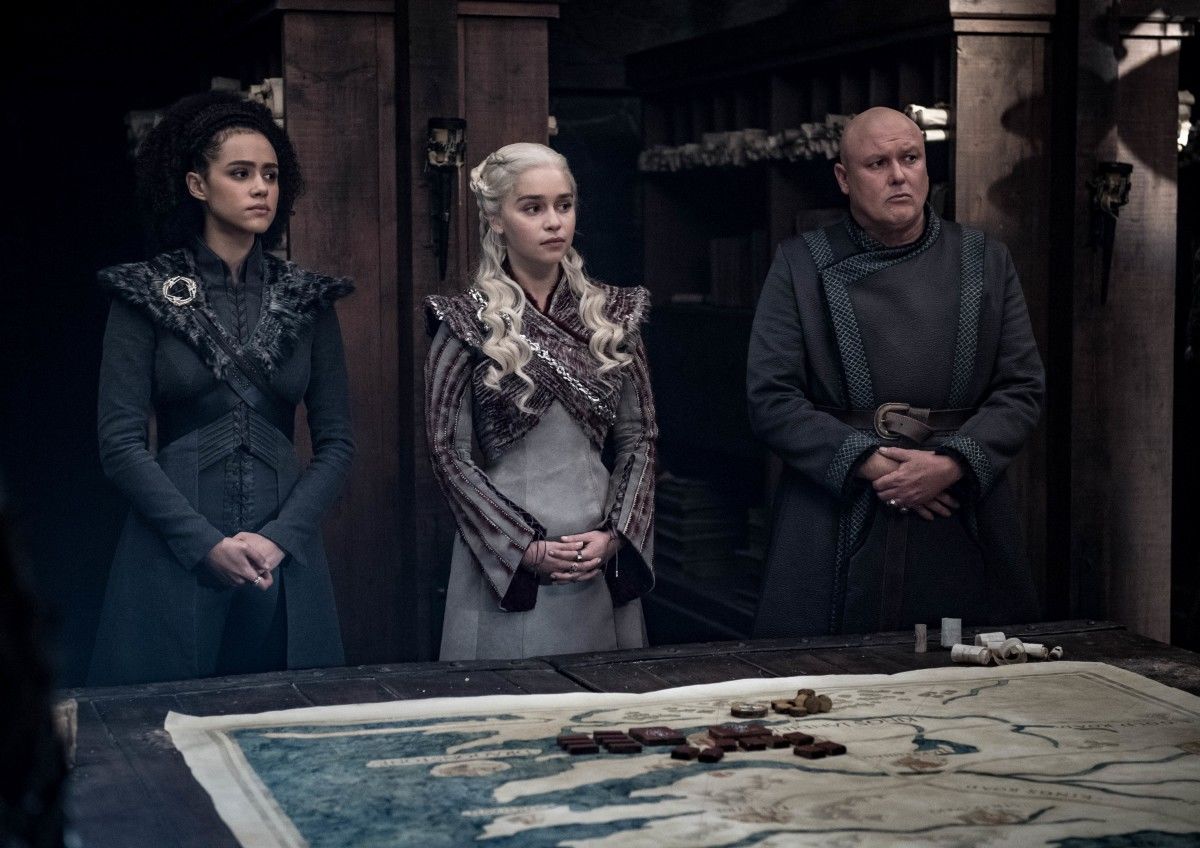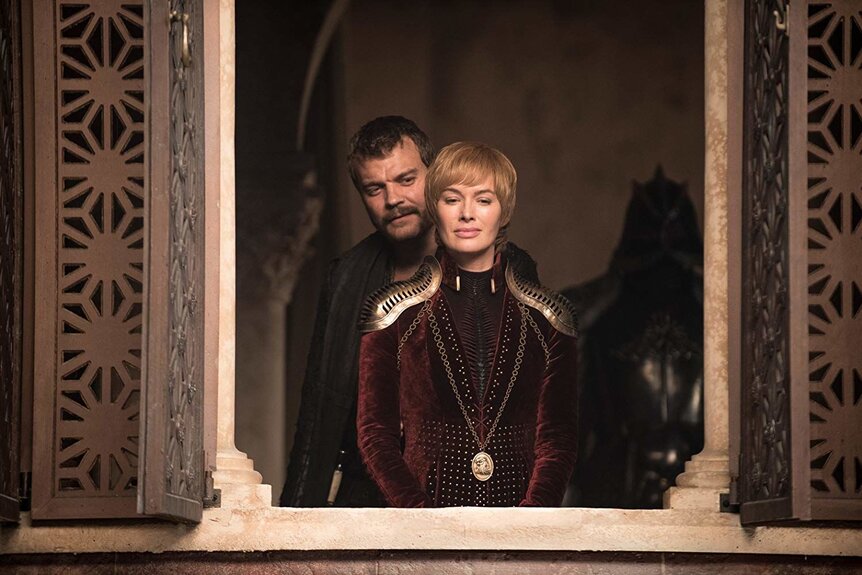Create a free profile to get unlimited access to exclusive videos, sweepstakes, and more!
Game of Thrones isn't going off the rails — it's more like the books than ever

The final season of Game of Thrones was always going to be controversial. This is a show that has inspired a passionate fanbase, and for many of them, this is a period of grief and emotional separation as much as it is a highly anticipated television finale. It is therefore not that big of a surprise that a phenomenon has sprung up over the last two weeks of the series, as the endgame of the show falls into place. There's a chunk of the fandom kicking their feet, pounding the bedclothes and doing their best Fred Savage: "Grandpa! You're messing up the story!" at the showrunners, angry at how the plot is unfolding.
It’s an understandable response. After all, unlike the early seasons, there aren’t novels for showrunners David Benioff and D.B. Weiss to follow. There’s an outline of significant plot points to hit from author George R.R. Martin, which has been kept a secret from the public, but otherwise, that’s it. Moreover, there are changes the show made along the way that meant this final season diverges from what will eventually be in Martin's final book. It’s easy for fans to declare the twists they don’t like to be a result of the showrunners "screwing things up."
However, Martin’s A Song of Ice and Fire series has a formula to it, and the events of "The Long Night" and "The Last of the Starks" follow it to a tee. These are stories that pace themselves differently from the traditional fantasy, with moments that would have once been a climatic finish coming far earlier. Many may quibble with the show’s early adaptation seasons, but one thing the series has always done is nailed that pacing. Ned's death doesn't come at the end of the first book, A Game of Thrones, but with over 100 pages and several chapters to go, leaving time and space for Martin to explore the answer to "What happens when the hero dies?"
The Red Wedding is even earlier, falling toward the end of the middle third, around page 575 of the 925-page Storm of Swords. In its wake, Martin asks the question "What if being The Good Guys won't protect you?" Joffrey's wedding follows about 100 pages later, with the rejoinder "What if being The Bad Guys won't save you, either?" The book then goes for dozens of chapters dealing with the fallout of both.
Martin said before Season 8 started the series was hewing pretty close to his planned ending, and so far the formula fits, despite some obvious and necessary technical changes. The choice to rename the "Others" of the book to "White Walkers" in the wake of Lost using "Others" as the name for the mystical bad guys meant that down the line "The Great Other" who leads them (and has yet to turn up on the page) had to be renamed. The showrunners used "The Night King," which is another character entirely in the books.
Still, we can infer that in Martin's future book, The Others will come to Winterfell, led by someone who represents a Great Evil. Winter will fall at the hands of someone on the side of the living. Then there will be hundreds of pages left, asking the question "What happens after good defeats evil?"
“The Last of the Starks” spent a feature-length episode answering that question, coming back with an answer precisely as nihilistic and misanthropic as readers have come to expect from Martin worldview: Not much.
Defeating evil isn’t magic. You don’t grow two inches or lose 20 pounds; it doesn’t whiten your teeth or improve your vision. The world keeps on turning; your metabolism and digestion are the same as the day before. Most importantly, it doesn’t make you better or smarter. Daenerys’ mistake in the episode is that she believes having defeated the Night King is somehow proof taking on Cersei will easier than it seemed it would be the day before, despite the fact that she lost over half her army, with most of the remaining members wounded. Her logic: After one defeats the greatest evil, petty evil should be simple. Right?
Wrong. Moreover, it’s become disturbingly apparently Daenerys’ dragons aren’t magically going to win her this war either. This is also in keeping with the formula that drives A Song of Ice and Fire. Ned’s honor wasn’t the diamond-plated plot armor viewers assumed. Tyrion’s good intentions as Hand of The King didn’t keep him safe either in the Battle of Blackwater Bay or from being used as the fall guy for Joffrey’s death. The Starks’ righteous cause didn’t keep them from being murdered, Jon Snow’s recognition that the Others/White Walkers are the true enemy didn’t keep the Night’s Watch from mutiny.
Daenerys believes she has a divine right to rule. As Tyrion dryly points out, walking through fire and birthing a few magical creatures is a pretty convincing experience on that front. However, at this point, fans should recognize that a character is never more in danger in Westeros than when they self-righteously believe in the good of their own actions.
This is the same story the books, and the show, have always been telling, even if sometimes fans forget that. It’s part of the "gritty realism" in the fantasy of A Song of Ice and Fire, the thing that makes the series different. What’s remarkable is how much viewers keep on hoping for a happy ending, and how upsetting it is to everyone when one is not forthcoming, despite this being what Game of Thrones has always delivered. The bittersweet ending we’ve been waiting for was always going to lean more towards the bitter end. Happily Ever Afters need not apply.



























